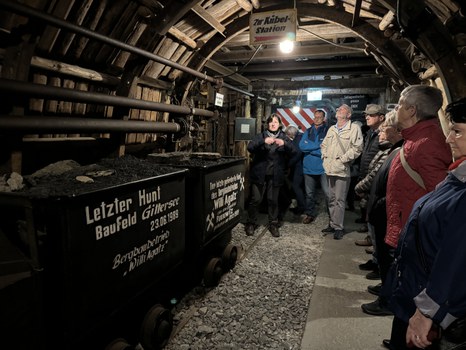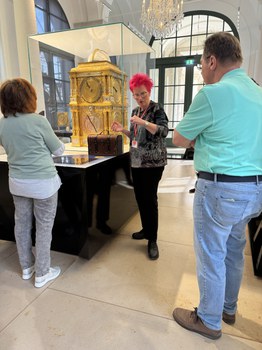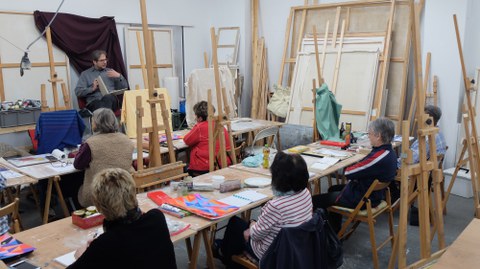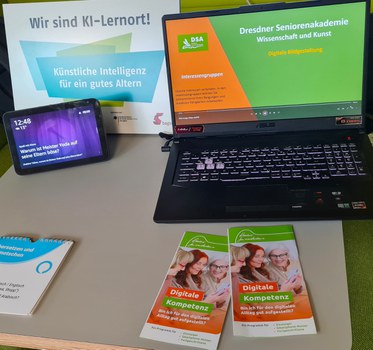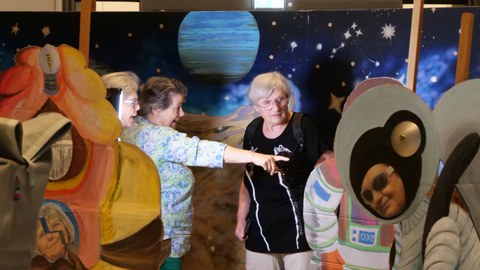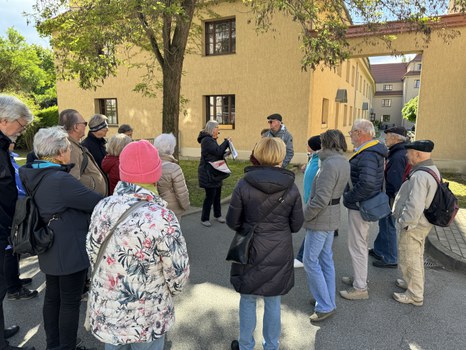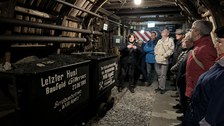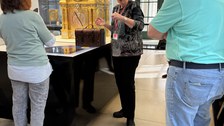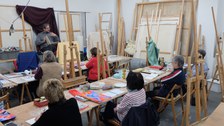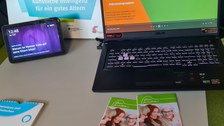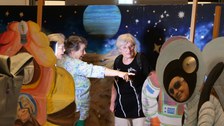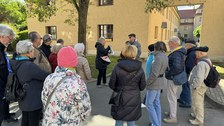Aug 29, 2024
Interview with the executive board Annelie Zeeh and Dieter Seyfarth: 30 years of the Seniors' Academy Dresden
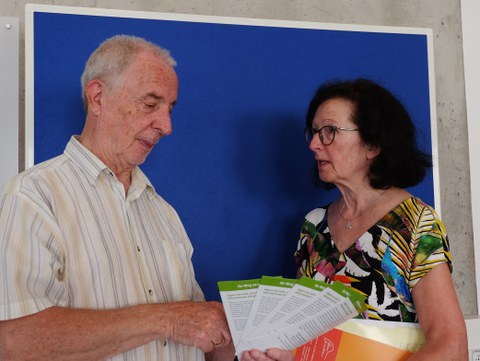
Dieter Seyfarth & Annelie Zeeh
The Seniors' Academy Dresden (Seniorenakademie Dresden, DSA for short) is celebrating its 30th anniversary this year. The first academy semester was officially opened in October 1994. At that time, the Seniors' Academy emerged from joint discussions between TUD and DHMD. Since then, the program for older people has grown steadily. In this interview, culTUre talks to the current DSA executive board, Annelie Zeeh and Dieter Seyfarth, about the development of the Seniors' Academy, popular offers and wishes for the future. Below the interview you will find some impressions of what the DSA has offered this year.
What brought you to Seniors’ Academy? What’s your job?
Annelie Zeeh: The Coswig Citizens' Academy was founded in 2005 as a branch of the Dresden Seniors' Academy Coswig's Lord Mayor is still its patron today. In 2014, he asked me if I would like to take over the vacant managerial position. In preparation for my own retirement (in 2021), I agreed and still hold the management position today. In 2021, I temporarily took over as office manager and have been Deputy Chairwoman of the Executive Board and Treasurer since 2023.
Dieter Seyfarth: I joined the DSA as a student in 2012 and was a member of the Program Commission from 2013 to 2017. In 2015, I became head of the Philosophical Discussion Group, and from mid-June 2021 to 2022 I was on the Finance Board. Since the end of November 2021, I have been acting Chairman of the Executive Board and have been the elected Chairman of the Executive Board since the 2022 Annual General Meeting.
What is the Seniors’ Academy? What makes it special?
We see ourselves as an educational institution that promotes active participation in social life through lifelong learning, especially for senior citizens. We strive to preserve knowledge and skills in old age through education – as an important contribution to maintaining personality, well-being and health, as well as to preventing loneliness. This also includes guiding and involving pensioners in current and future technological developments. However, we are essentially open to everyone who is interested – regardless of their educational level or age.
What is special – and in our experience unique – is that the DSA works almost exclusively on a voluntary basis. The Speakers, the Board of Directors, the Leaders of the Interest and Working Groups, and many other active members volunteer their time to prepare and organize the 700 or so events that take place each year. The DSA office only needs two to three part-time employees to carry out the required administrative work.
Who is the target group? How many people participate every semester?
We predominantly cater to the elderly who are looking to expand their knowledge and enjoy interacting with others. But in general, we welcome anyone who is interested – regardless of their profession or educational background. We host an average of 400 to 500 students per semester. In the future, we must also consider how we can create programs that appeal to older people from different cultural backgrounds and how we can best support their integration.
What are the most popular programs?
Almost all of our programs are equally popular – we design the programs according to the experiences we gained in previous courses. The following are currently very popular: The latest news from science, technology and medicine, the history of Saxony, current political topics, educational trips, themed tours of the region, digital content and AI as well as the opportunity to get involved in 12 interest and working groups.
How has the Academy changed over the past 30 years? Are there any changes you’ve noticed yourself?
In the 1990s, the DSA's educational programs for the elderly in Dresden were something very new and special. Many of those responsible and active in the DSA were not even of retirement age. Today, there are a variety of educational opportunities for all age groups in the region. Our active members are in the 65+ and 70+ age groups. However, the willingness to take on responsibility as a volunteer has decreased significantly. As more baby boomers retire and become more technology-savvy, we will need to adapt to their needs.
Who are the most important collaboration partners?
There are a large number of partners with whom we work to design our programs for the semester: TU Dresden and the University Hospital Dresden, the Deutsches Hygiene-Museum, Eberhardt-TRAVEL, museums and art collections, the College of Music, the Medienkulturzentrum, Bürgerstiftung Dresden, the City of Coswig and at least 30 other partners.
What role does an increasingly digital world play for the Seniors' Academy?
During the pandemic, online events were organized as a substitute and received a surprisingly positive response from our participants. Today – in line with the general trend – online educational programs ranging from digital tools in everyday life to digital communication and AI make up a large part of our programs. We believe it is our social duty and obligation to support people who have been out of the workforce for some time on the path to ever greater digitalization and the increasing use of AI.
How does the collaboration between the Seniors' Academy and TUD work without there being any fixed cooperation agreements between the two sides?
TUD was one of the founders of the DSA and was not only a strong partner in terms of content, but also a willing helper in many organizational and administrative matters. Personal agreements are still valid to this day, despite personnel changes on both sides of the partnership: For example, DSA's participation in Dresden Science Night, selected advertising and mailing campaigns as well as IT support.
In addition, a member of TUD has always served as honorary chair of the DSA Advisory Board. For many years, Dr. Undine Krätzig, Head of Student Affairs and Continuing Education, chaired the Advisory Board. Since October 2023, Dr. Cornelia Hähne, Head of University Culture, has taken over this task and function.
A large number of our students see the DSA as a natural part of TUD. For example, a study conducted by the University of Magdeburg in 2023 on the importance and working methods of 15 German senior academies found that DSA participants are disproportionately university educated (85% of respondents) and 60% are affiliated with TUD.
What are you hoping for the future of the Seniors' Academy?
We are always looking for new ideas for interesting events and meetings for our students. Our interesting and long-standing creative collaborations with our partners in Dresden and the region will be maintained and we are also very happy to work with new partners. The support of dedicated volunteers – including those in positions of responsibility – is essential for this creative future. In addition, reliable institutional financial support for our work is of the utmost importance. And finally, we would like our work to enjoy a higher profile in Dresden.

